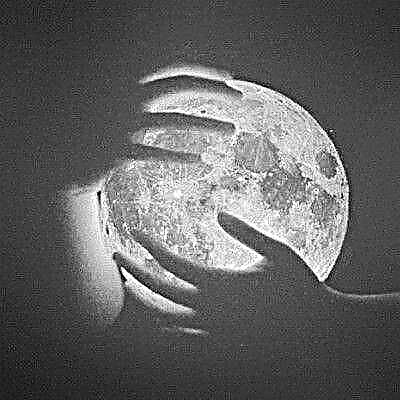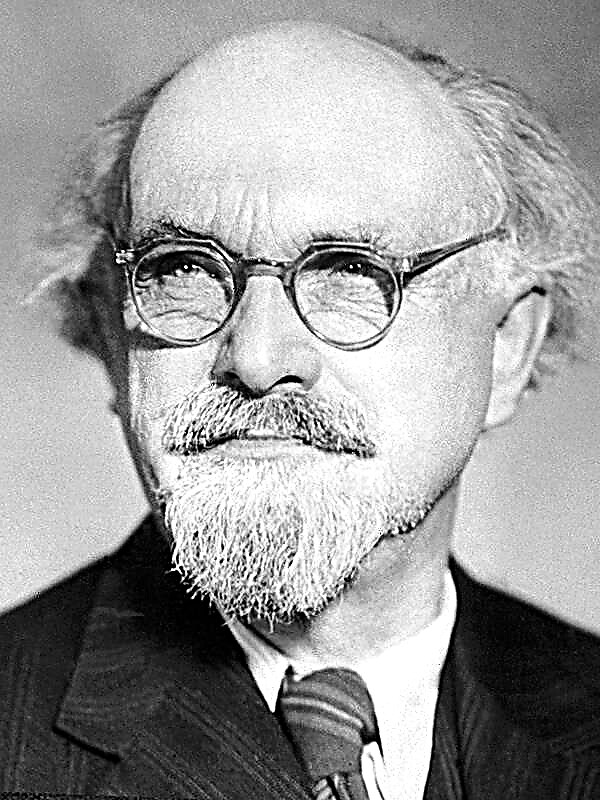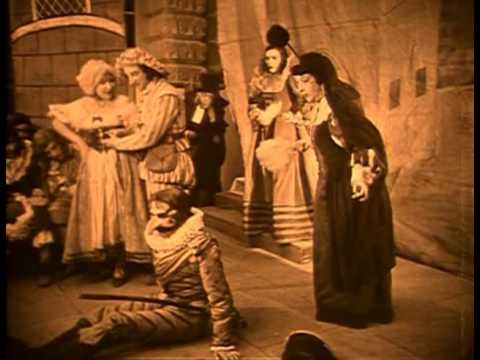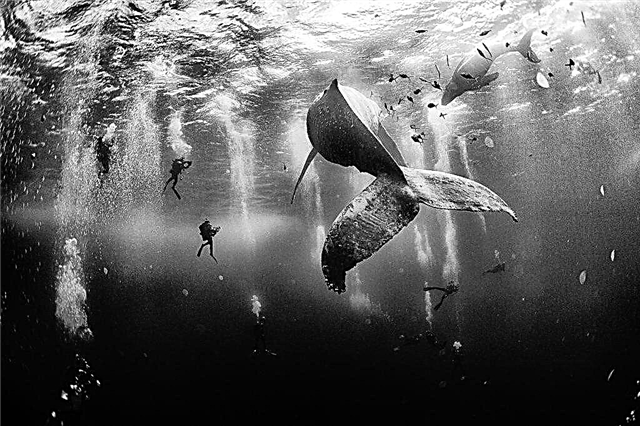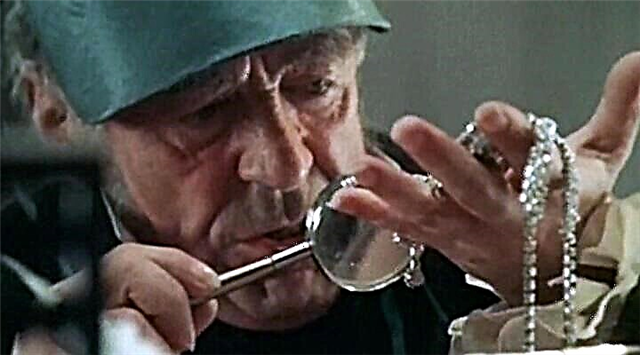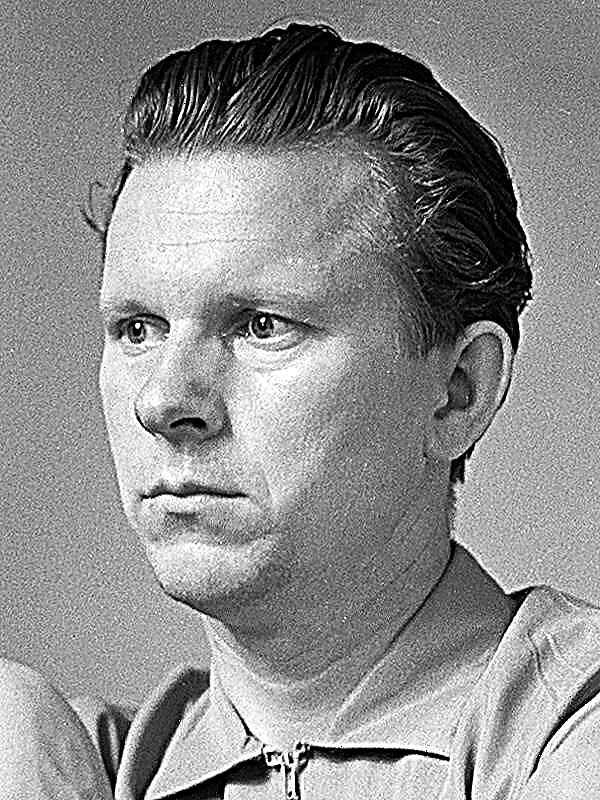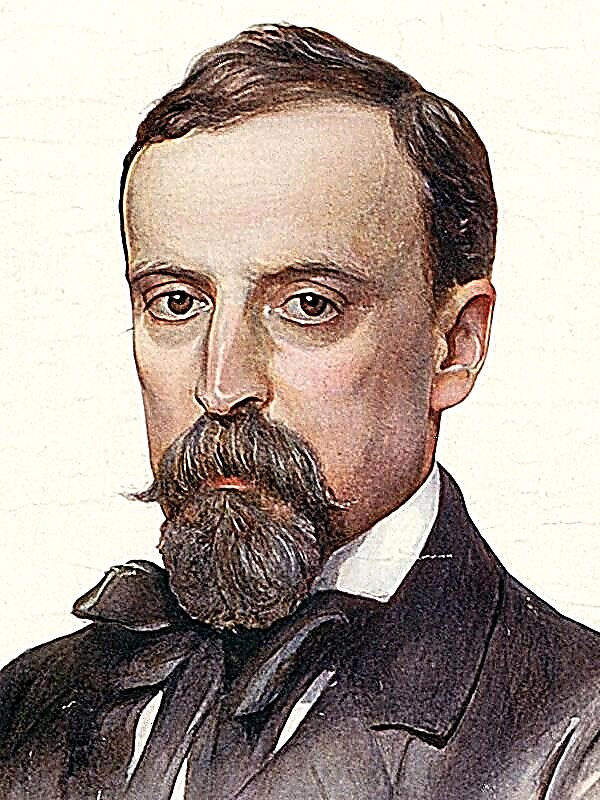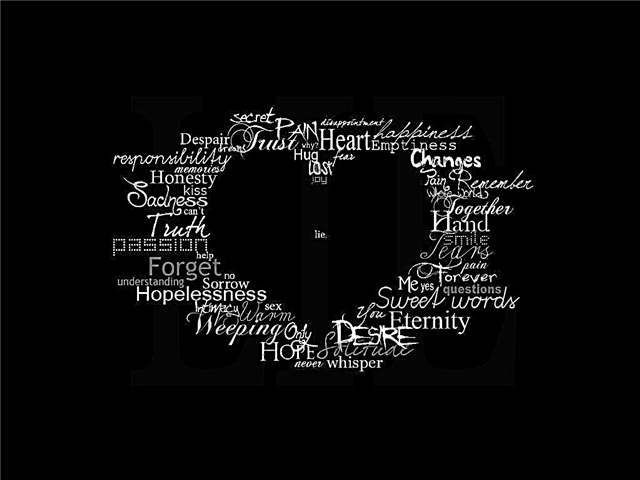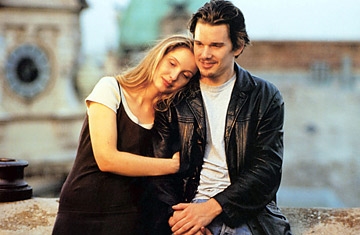Starting the story, the author announces that his main goal is to show the general character of the era, its morals, concepts, beliefs, and therefore he allowed history to deviate from the details, and concludes that his most important feeling was indignation: not like John on a society that is not indignant at him.
In the summer of 1565, a young boyar, Prince Nikita Romanovich Serebryany, returning from Lithuania, where he spent five years in painstakingly signing a peace for many years and did not succeed because of the dodging of Lithuanian diplomats and his own straightforwardness, drives up to the village of Medvedevka and festivities . Suddenly, the guardsmen come running, chopping men, catching girls and burning a village. The prince takes them for robbers, binds and cuts, despite the threats of their main, Matvey Khomyak. Having ordered his soldiers to take the robbers to the laborer, he goes on with the stirrup Mikheich, the two captives who were beaten off by them from the guardsmen are taken to accompany him. In the forest, being robbers, they protect the prince and Mikheich from their own comrades, bring them to the miller for the night, and, having said one, Vanyukha Ring, the other Korshun, they leave. Prince Athanasius Vyazemsky arrives at the mill and, considering the Melnikov guests to sleep, curses his unrequited love, demands love spells, threatens the miller, forces him to find out if he has a happy rival, and, having received too much of an answer, leaves in despair. His sweetheart, Elena Dmitrievna, daughter of the near-deceased Pleshcheyev-Ochin, orphaned to avoid Vyazemsky's harassment, found salvation in marriage to the old boyar Druzhina Adreevich Morozov, although she had no affection for him, loving Serebryany and even giving him the word - but Serebryany was in Lithuania. John, patronizing Vyazemsky, angry at Morozov, dishonors him, inviting him to sit below Godunov at a feast, and, having been refused, declares him disgraced. Meanwhile, in Moscow, the returning Silver sees a lot of guardsmen, impudent, drunk and robbers, stubbornly calling themselves “royal servants”. The met blessed Vasya calls him brother, also a holy fool, and predicts the evil from the boyar Morozov. The prince goes to him, his old and parental friend. He sees Elena in the garden in a married kokoshnik. Morozov talks about the oprichnina, denunciations, executions, and the tsar’s move to the Alexander’s settlement, where, according to Morozov’s belief, Serebryany was going to certain death. But, not wanting to hide from his king, the prince leaves, having explained with Elena in the garden and tormented mentally.
Watching pictures of terrible changes along the way, the prince arrives in Sloboda, where he sees chopping blocks and gallows among the luxurious chambers and churches. While Serebryany expects to enter the courtyard, young Fedor Basmanov poisons him, for fun, with a bear. The unarmed prince is saved by Maxim Skuratov, the son of Malyuta. During the feast, the invited prince wonders if the tsar knows about Medvedevka how he will reveal his anger, and marvels at the terrible encirclement of John. The king favors one of the prince’s neighbors with a cup of wine, and he dies, poisoned. They also complain about the prince, and he fearlessly drinks good, fortunately, wine. In the middle of a sumptuous feast, the tsar tells Vyazemsky a tale, in the allegories of which he sees his love story and guesses the tsar’s permission to take Elena away. A rumpled Hamster appears, tells the incident in Medvedevka and points to Serebryany, who is being dragged to be executed, but Maxim Skuratov stands up for him, and the returned prince, having told about the excesses of the Hamster in the village, is forgiven - until the next, however, he swears not to hide from the king in case of his anger, and meekly wait for punishment. At night, Maxim Skuratov, explaining himself to his father and not finding understanding, secretly escapes, and the tsar, frightened by the stories of mother Onufrevna about hellish hell and the beginning of a thunderstorm, is visited by the images of those killed. Raising the gospel of the guardsmen, clothed in a monastic cassock, he serves the matins. Tsarevich John, who took his worst features from his father, provokes his revenge with constant mockery of Malyuta: Malyuta introduces him to the tsar as a conspirator, and he orders, having delighted the tsarevich on the hunt, to kill and cast him to avert his eyes in the woods near the Filthy Puddle. A gang of robbers gathering there at this time, among whom the Ring and Korshun, is accepting replenishment: a guy from Moscow and the second, Mitka, a hulking fool with a truly heroic strength, from under Kolomna. The ring tells about his acquaintance, the Volga robber Ermak Timofeevich. The sentinels report the approach of the guardsmen. Prince Silver in Sloboda talks with Godunov, not being able to understand the subtleties of his behavior: how, seeing the tsar’s mistakes, can he not be told about that? Mikheich comes running, having seen the Tsarevich captured by Malyuta with the Hamster, and Serebryanyy rushes in pursuit.
Further, an old song that interprets the same event is interwoven into the story. Having caught Malyuta, Serebryany gives him a slap in the face and engages in battle with the guardsmen, and the robbers come to the rescue. Oprichniki are beaten, the prince is intact, but Malyuta and the Hamster fled. Soon Vyazemsky came to Morozov with the guardsmen, ostensibly to announce that the disgrace had been removed from him, and in fact to take away Elena. Serebryan is also invited for the sake of such joy. Morozov, who heard his wife’s love words in the garden but couldn’t make out the interlocutor, believes that this is Vyazemsky or Serebryany, and starts a “kiss rite”, believing that Elena’s embarrassment will betray her. Silver penetrates his plan, but is not free to avoid the rite. Kissing Silver, Elena loses her senses. By the evening of Elena’s in the bedchamber, Morozov reproaches her with treason, but Vyazemsky breaks in with her henchmen and takes her away, severely, however, wounded by Serebryany. In the forest, weakened by wounds, Vyazemsky loses consciousness, and the distraught horse brings Elena to the miller, and he, having guessed who she is, hides her, guided not so much by heart as by calculation. Soon the guardsmen bring the bloodied Vyazemsky, the miller speaks blood to him, but, frightening the guardsmen with all the devilry, he turns them away from an overnight stay. The next day, Mikheich arrives, looking for a ring from Vanyuha for the prince, who was thrown into the prison by the guardsmen. The miller points the way to the Ring, promising Mikheich upon returning a certain firebird. After listening to Mikheich, the Ring with Uncle Korshun and Mitkoy are sent to Sloboda.
Malyuta and Godunov come to prison in Serebryany to conduct an interrogation. Malyuta, insinuating and affectionate, having been ridden with the disgust of the prince, wants to give him a slap in the face, but Godunov holds him back. The king, trying to distract himself from thoughts about Serebryany, goes on a hunt. There Adragan rattles him, at first distinguished himself, falls into a rage, destroys the falcons themselves and flies away; Trishka is outfitted in search of threats befitting the occasion. On the road, the king meets blind songwriters and, anticipating the fun and the boredom of the former storytellers, tells them to come to their chambers. This is the Ring with the Kite. On the way to Sloboda, Korshun tells the story of his villainy, which has deprived him of sleep for twenty years, and foreshadows his imminent death. In the evening, Onufrevna warns the tsar that the new storytellers are suspicious, and, having put security at the door, he calls them. The ring, often interrupted by John, starts new songs and fairy tales and, proceeding to the story of the Pigeon Book, notes that the king fell asleep. At the head of the prison keys lie. However, the imaginary sleeping king calls the guard, koya, seizing Korshun, misses the Ring. When he runs away, he stumbles upon Mitka, who opened the prison without any keys. The prince, whose execution is scheduled for the morning, refuses to run, remembering his oath to the king. He is being taken away by force.
About this time, Maxim Skuratov, wandering, comes to the monastery, asks to confess, blames his dislike for the sovereign, disrespect his father and receives forgiveness. Soon he leaves, intending to repel the Tatars, and meets Tryphon with Adragan caught. He asks him to bow to his mother and not tell anyone about their meeting. In the forest of Maxim robbers grab. A good half of them rebel, dissatisfied with the loss of Korshun and the acquisition of Silver, and requires a campaign in Sloboda for robbery, to which they knock down the prince. The prince frees Maxim, takes over the stanchiks and assures them to go not to Sloboda, but to the Tatars. Captured Tatar leads them to the camp. By cunningly inventing the Ring, they manage to crush the enemy at first, but the forces are too unequal, and only the appearance of Fedor Basmanov with a motley army saves Serebryany life. Maxim, with whom they have fraternized, dies.
At the feast in Basmanov’s tent, Serebryany reveals all the duplicity of Fedor, a brave warrior, a crafty slanderer, an impudent and low king’s henchman. After the defeat of the Tatars, the band of robbers is divided in two: part goes to the forests, part, together with Serebryany, goes to Sloboda for imperial pardon, and the Ring with Mitkoy, through the same Sloboda, to the Volga, to Yermak. In Sloboda, the jealous Basmanov slanders Vyazemsky and accuses him of witchcraft. Morozov is complaining about Vyazemsky. At a confrontation, he claims that Morozov himself attacked him, and Elena left of her own free will. The king, wishing death to Morozov, appoints them a "judgment of God": to fight in Sloboda with the condition that the vanquished will be executed. Vyazemsky, fearing that God would give victory to old Morozov, goes to the miller to speak a saber and catches, remaining invisible, there Basmanova, who came after the grass with tirlich, to enter the royal mercy. Having spoken a saber, the miller bewitches, in order to find out, at the request of Vyazemsky, his fate, and sees pictures of terrible executions and his impending demise. The day of the fight is coming. Among the crowd are the Ring with Mitkoy. Leaving against Morozov, Vyazemsky falls off his horse, his previous wounds open, and he rips off Melnikov’s incense, which should ensure victory over Morozov. He exposes Matvey the Hamster instead. Morozov refuses to fight with a hireling and seeks out a replacement. Mitka is called, who recognized the bride kidnapper in Hamster. He refuses a saber and given to him for laughs the shafts kill the Hamster
Calling Vyazemsky, the tsar shows him the incense and accuses him of witchcraft against himself. In prison, Vyazemsky says that he saw her with the sorcerer Basmanov, who was planning the death of John. The Basmanov, who did not wait for the evil one, opened his casket on his chest and plunged the king into the prison. Morozov, invited to the royal table, John again offers a place after Godunov, and after hearing his rebuke, he grants Morozov a clownish caftan. Kaftan is worn by force, and the boyar, as a jester, tells the tsar everything he thinks about him and warns what damage to the state, in his opinion, will result in the reign of John. The day of execution comes, terrible guns grow on Red Square and the people gather. Executed Morozov, Vyazemsky, Basmanov, father, whom he showed in torture, the miller, Korshun and many others. The holy fool Vasya, who appeared between the crowds, read to execute him, too, and the royal anger incurs him. The people do not allow to kill the blessed.
After executions, Prince Serebryany comes to Sloboda with a detachment of stanitsniks and at first comes to Godunov. He, partly shy of his relations with the royal opal, but noting that after the execution the king softened, announces the voluntary return of the prince and brings him. The prince says that he was withdrawn from prison against his will, talks about the battle with the Tatars and asks for mercy for the stanchiks, reprimanding them the right to serve, where they will point out, but not in the oprichnina, among the “peers”. He himself also refuses to fit into the oprichnina, the king appoints him governor at the guard regiment, in which he identifies his robbers, and loses interest in him. The prince sends Mikheich to the monastery, where Elena retired to keep her from being tonsured, announcing his imminent arrival. As long as the prince and the stanchiki swear allegiance to the tsar, Mikheich rides to the monastery, where he delivered Helen from the miller. Thinking about the future happiness, Serebryany goes after him, but Mikheich at the meeting reports that Elena cut her hair. The prince goes to the monastery to say goodbye, and Elena, who became the sister of Evdokia, announces that Morozov’s blood is between them and they could not be happy. Having said goodbye, Serebryany with his detachment sets off to watch, and only the consciousness of the duty being performed and of an unclouded conscience preserves for him some light in life.
Years pass, and many of Morozov's prophecies come true, John is defeated at his borders, and only in the east are his possessions expanded by the efforts of Yermak and Ivan Kolts squads. Having received gifts and diplomas from the Stroganov merchants, they reach the Ob. Ermakovo Embassy arrives to John. The Ivan Ring that brought him turns out to be a Ring, and by his companion Mitka, the king recognizes him and grants him forgiveness. As if wishing to appease the Ring, the king calls on his former comrade, Silver. But the governors say that he died seventeen years ago. At the feast of Godunov, who entered great power, the Ring tells a lot of wonderful things about conquered Siberia, returning with a sad heart to the deceased prince, drinks in his memory. Concluding the story, the author calls for forgiveness to Tsar John of his atrocities, for he is not the only one responsible for them, and notices that people like Morozov and Serebryany were also often able to withstand the good and go along the straight path among the evil surrounding them.

